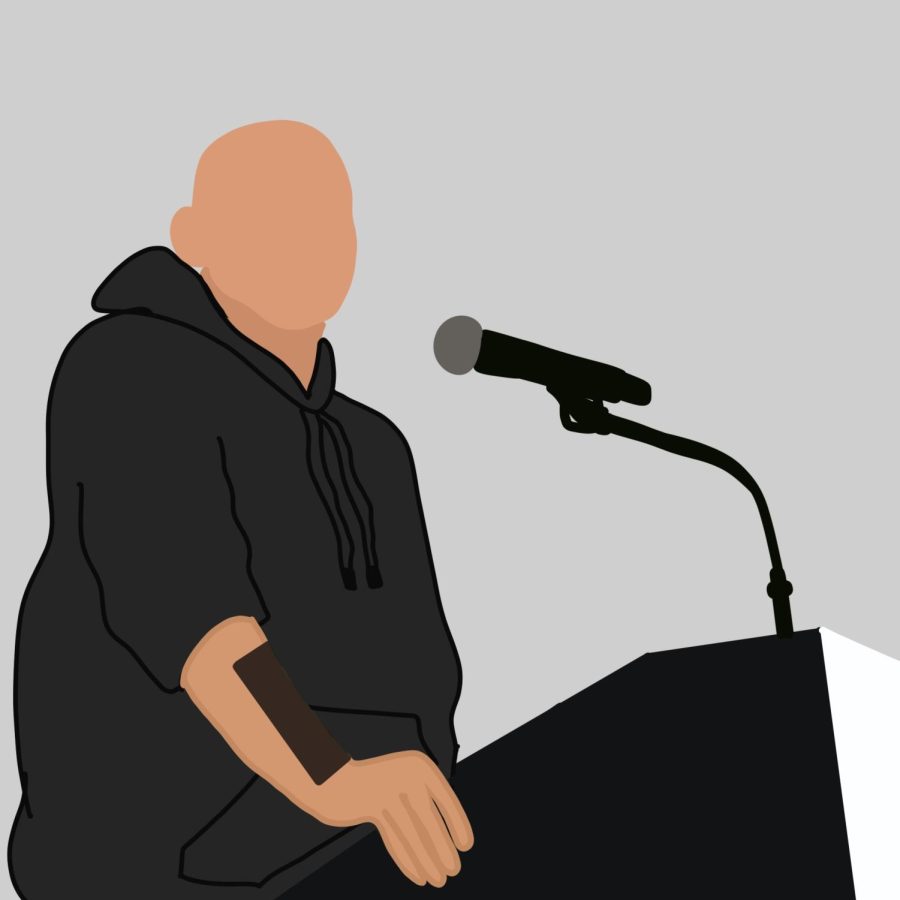Voters need to look past aesthetic
November 8, 2022
As the 2022 midterms have encompassed the national political stage, the face-off between Democratic nominee John Fetterman and Republican nominee Dr. Mehmet Oz for Pennsylvania’s Senate seat has emerged as one of the most important races of the election cycle.
Fetterman is not your average, run-of-the-mill politician. Towering over his opponent at a whopping 6-foot-9, dawning his signature basketball shorts and Carhartt hoodies, Fetterman has painted himself as a genuine candidate that stands out amongst the suits and neckties of Washington, D.C. Another difference that sets Fetterman aside from everyone else is that he suffered a stroke days before his campaign for senator began, leaving him with auditory processing issues that have since required him to use closed captioning during interviews and debates.
Since his career in politics began as the mayor of Braddock, Pennsylvania, Fetterman has championed himself as a man of the people who work day in and day out to support and improve the lives of his constituents. Per an article by The Philadelphia Citizen, during his time as mayor, Fetterman funded the creation of green spaces, urban housing projects and programs to fight poverty and hunger in the streets of Braddock. As a result, he was immensely popular among his constituents in Braddock and continued this trend as he ascended to Lieutenant Governor. But despite the work he has engaged in to support the citizens of Pennsylvania and the reputation he has garnered during his political career, Fetterman is fighting tooth and nail for every vote he can get during the 2022 midterms.
Fetterman’s stroke has been a significant point of contention during his race against Dr. Oz, whose campaign has been very vocal about Fetterman’s lack of communication about his health and whether or not the effects will impact his performance as a Senator for Pennsylvania. During an interview with NBC, Fetterman was rarely asked about his policy positions and was instead asked more questions about the effects of his stroke, how it has affected his ability to campaign, how it has affected his daily life, and where he is on the road to recovery. Fetterman was routinely criticized during his debate with Dr. Oz, as well as after it had concluded, by Oz and his supporters about Fetterman’s performance as well as his use of closed captioning to accommodate for his auditory processing issues. For many Pennsylvanians, the debate was hard to watch. Fetterman was obviously nervous, made mistakes and did not perform as well as the revered T.V. personality that is Dr. Oz. Although debates between politicians are rarely watched in their entirety, what voters do watch are the highlights — and the highlights do not paint Fetterman in a good light. This framing in the media has been the main contributor to the closee race between Oz and Fetterman.
While Fetterman has conducted an immensely successful campaign during his race against Dr. Oz, his health and ability to perform are still under heavy scrutiny. Despite many observable factors that indicate his mental fortitude and cognitive ability have not declined due to his stroke, this is still a clear indicator of how voters use optics, rather than policy and demonstrations of reliability, to decide who gets their vote. As Maria Town, president of the American Association of People with Disabilities, described in an article by the New York Times, “It really does show how we use speech to perceive competence and confidence, when we really shouldn’t.” Fetterman has demonstrated his competence on the campaign trail, conducting himself well and showcasing his progress in recovery. The race for the highly contested Senate seat should be focused on the policies and promises of Oz and Fetterman, but it has now turned into an ableist crusade. American voters need to learn to look past the aesthetics of elections if real change is to be enacted — meaningful change may not always be smartly dressed in a suit and tie but may be masked in a man who is in need of closed captioning devices, yet still wants to work for the good of his constituents.













